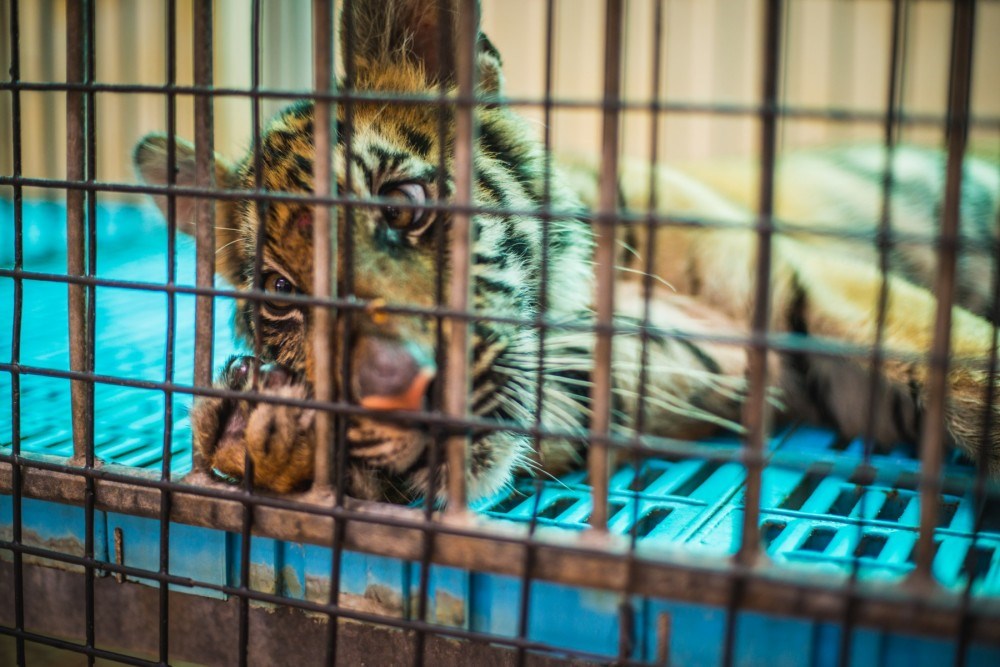Endangered wildlife for sale on Facebook!
Meta's Facebook is under fire for still hosting posts promoting wildlife trading and illegal sales of animals at the hands of poachers.
-

A caged endangered baby tiger
Meta's Facebook was rendered into a "thriving marketplace" for buying and selling endangered wildlife online, allowing the sale of many critically endangered species right on its marketplace, a shocking report by the US-based Avaaz group revealed on Wednesday.
Avaaz researchers revealed that a probe into Facebook found 129 posts listing endangered species for sale, among which were baby tigers, African grey parrots, and the pygmy marmoset, the world's smallest monkey.
"Avaaz's research shows that, on Facebook, wildlife trafficking takes place in broad daylight," said Ruth Delbaere, a senior legal campaigner with Avaaz.
She further accused Meta of insufficiently enforcing its own policies. "[By that,] Facebook is enabling an international trade that has devastating effects on biodiversity and the stability of natural ecosystems."
Facebook's guidelines prohibit content that seeks to buy, sell, trade, donate or gift endangered species or their parts, but the posts are still up there on the platform, and those found could be a drop in the sea of those that are actually there.
Read more: Facebook Papers Reveal Company Knew of Maid Abuse, Failed to Act
A spokesperson for Facebook's parent company argued, however, that it was "unfair" to judge the company's enforcement efforts on the basis of just 129 posts, adding that Meta removed pages that violated its policies.
"The results don't reflect the extensive work we've done to combat wildlife trafficking on Facebook," the spokesperson told Reuters, adding that the company has introduced technology to find and remove such content and to warn users who search for it.
Illegal wildlife trafficking has become a hot topic following claims that the pandemic ravaging the world, COVID-19, could have been caused by the consumption of bats caused by illegal wildlife trading networks.
China is still seen as a hub for illegal wildlife trading, though Beijing has been seeking to crack down on illegally trading wildlife, especially for food.
China's Supreme Court, in a further move at curbing the illegal market, issued new guidelines last week saying legal efforts to combat trafficking should cover the entire criminal supply chain - from poaching to processing.

 2 Min Read
2 Min Read








